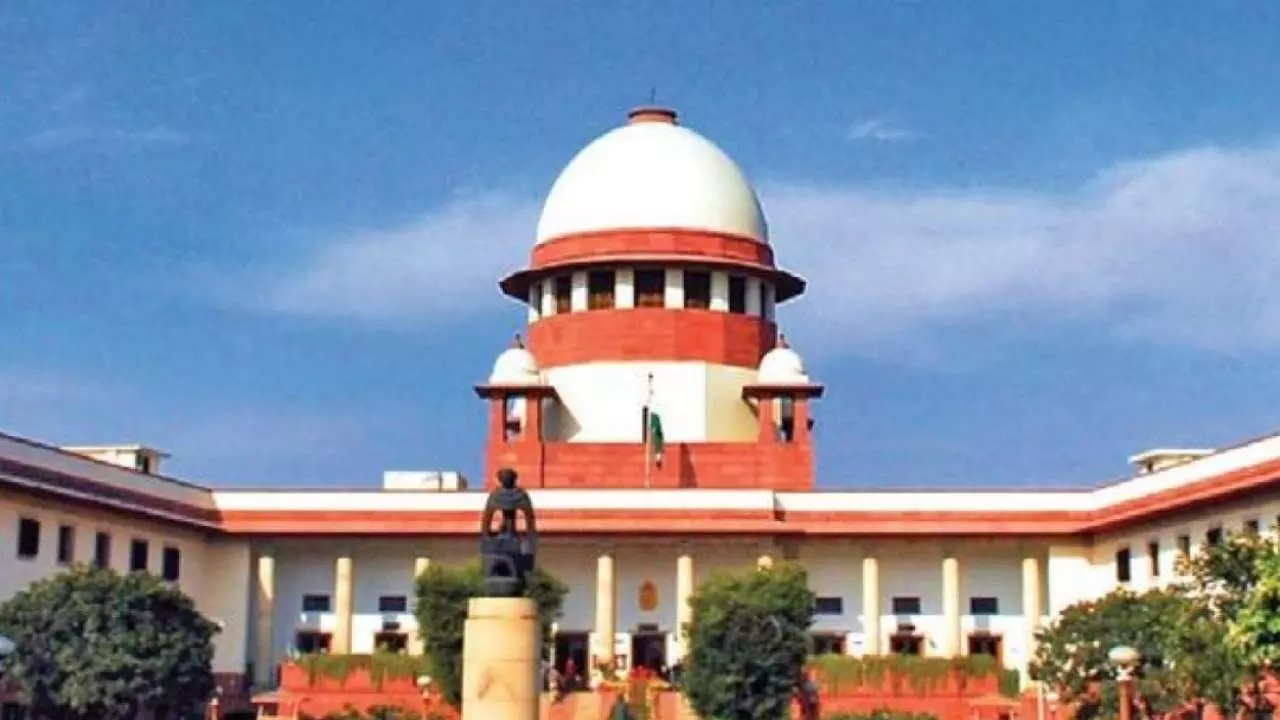
The bright and flip sides of criminal law reforms
text_fieldsUnion Home Minister Amit Shah has presented three bills in Parliament that will replace existing criminal codes which have been in force ever since the British rule: the Indian Penal Code (IPC) of 1860, Criminal Procedure Code, 1898 (CrPC) and the Indian Evidence Act, 1872 which will be replaced respectively by bills named Bharatiya Nyaya Sanhita, Bharatiya Nagarik Suraksha Sanhita and Bharatiya Sakshya Sanhita. With the three bills having been referred to the Parliament subject committee of Home Ministry, discussions, claims and criticisms about the bills have started being aired. As Congress General Secretary Randeep Singh Surjewala pointed out, the three bills that have far-reaching ramifications demand substantive debate with the involvement of jurists, constitutional experts, criminologists, reform advocates and the public. It is clear that the customary propensity of the Hindutva advocates, prompted by the slogan of Hindu-Hindi-Hindustan, to give the codes Hindi-Sanskrit names instead of English ones, alone will not result in any revolutionary changes. It is true that there are several laws and punishments in the existing criminal code that are outdated and do not keep abreast of with the changing milieu. And it has been a demand from social reformers and legal scholars that they should be revisited in tune with the times. The Union Ministry of Home Affairs claim that the bills were prepared by a council headed by former Law University Vice Chancellor Dr Ranbir Singh, after four years of diligent work involving extensive consultations and submitted to the government on 27 February 2022. The consultations included participation of 18 states, seven union territories, the Supreme Court, 16 High Courts , five judicial academies, 22 law universities, 142 MPs, , and 270 MLAs who had a total 138 meetings. Even granting this claim, criminal law reforms that have deep implications for people's lives and national security demand serious exchange of views.
The move of the Narendra Modi-Amit Shah leadership to overhaul the criminal law is probably prompted by a wish to be honoured as the architects of Hindutva Rashtra in future history who have wiped out the last vestiges of British colonialism and given the country an entirely new Indian criminal code. In the matter of civil code, the Prime Minister has already announced a Uniform Civil Code in Bhopal. Its draft, however, has not yet seen the light of day. To the extent of content of the new bills that have emerged, legal experts and popular leaders have already drawn attention to the proposals which can be accepted, supported or strongly opposed. The general view is that among the provisions that are to be welcomed are punishments like social service for minor crimes, more severe punishment for crimes like infanticide, foeticide and rape, punishment of seven years imprisonment up to gallows for all accused in mob killings, inclusion of video in evidence law etc. It is undeniable that the infusion of technology will speed up criminal investigation and evidence gathering. At the same time, although Section 124A of Indian Penal Code, which the Supreme Court had termed as a law introduced by the British empire to suppress the freedom struggle, and it was high time that it is removed from the statute books, has now been deleted but only to be replaced by more stringent provisions in Section 150. This has naturally come in for widespread criticism. The concern expressed by critics is that the government, investigative agencies and the police will go to any lengths to imprison indefinitely or penalise those not to their liking. Offences inserted in Article 150 include armed rebellion, separatism, subversive activity and endangering the sovereignty, unity and integrity of the country. And none of these has a precise definition. It can only be termed as a replica of the draconian UAPA. If the spirit of UAPA, which is misused to imprison countless innocent people or to arrest people on mere suspicion, is included in Bharatiya Nyaya Sanhita, it can only be called a blatant miscarriage of justice. In fact any reformed penal code should do away with this and similar injustices. To be mentioned along with this is the need for an overhaul of the machinery in charge of enforcing law. Ultimately, any legal reform is destined to end up futile if it leaves intact our police force, which has already earned notoriety as an organized criminal group, does not include a clean-up of the judiciary that is getting increasingly tainted, or does not address the inordinate delay in trials thereby leading to only an increase in crimes.

























